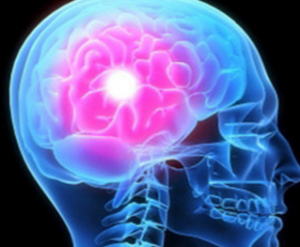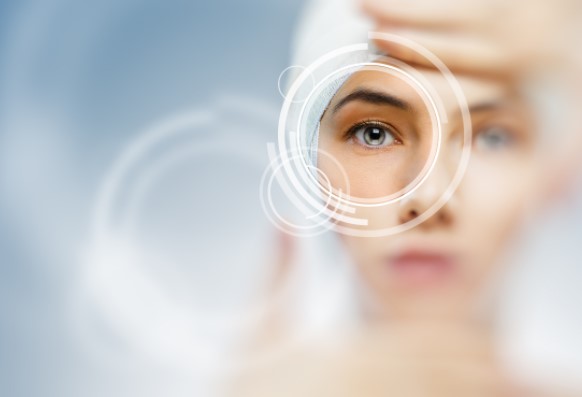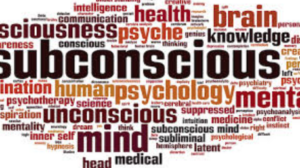
 1 Ancient Roots: The use of hypnotic-like techniques can be traced back to ancient civilizations. The Greeks, Egyptians, and Hindus had early forms of what we now recognize as hypnotherapy.
1 Ancient Roots: The use of hypnotic-like techniques can be traced back to ancient civilizations. The Greeks, Egyptians, and Hindus had early forms of what we now recognize as hypnotherapy.
2 19th Century Development: Hypnotherapy as a formal therapeutic practice gained popularity in the 19th century, thanks to figures like James Braid, who coined the term “hypnosis” and emphasized its use for therapeutic purposes.
3 Not Mind Control: Contrary to common misconceptions, hypnotherapy does not involve mind control. Individuals under hypnosis are in a state of heightened focus and concentration, but they still have control over their thoughts and actions.
4 Individual Responses Vary: People respond to hypnotherapy differently. Some individuals are highly responsive and can enter a deep trance easily, while others may only experience a light trance or may not be as responsive.
5 Clinical Applications: Hypnotherapy is used in various clinical applications, including pain management, stress reduction, anxiety treatment, weight loss, and smoking cessation. It is also used in the treatment of phobias and post-traumatic stress disorder (PTSD).
6 Brain Activity Changes: Studies using neuroimaging techniques like MRI have shown that hypnosis can lead to changes in brain activity. It often involves alterations in the anterior cingulate cortex, thalamus, and default mode network.
7 State of Relaxation: Hypnotherapy induces a deep state of relaxation, which can be beneficial for both mental and physical well-being. The relaxation response can help reduce stress and promote a sense of calm.
8 Positive Suggestion: Hypnotherapy often involves the use of positive suggestions to influence behavior or thought patterns. These suggestions are tailored to help individuals overcome challenges, break habits, or achieve specific goals.
9 Complementary Treatment: Hypnotherapy is sometimes used as a complementary treatment alongside traditional medical approaches. It can be integrated into a comprehensive treatment plan for conditions like chronic pain, irritable bowel syndrome (IBS), and insomnia.
10 Ethical Standards: Professional hypnotherapists adhere to ethical standards and guidelines. They prioritize the well-being and autonomy of their clients and ensure that the therapeutic process is conducted with respect and consent.
 When you think about hypnosis, what do you visualize? For many, it’s a clock-swinging magician or a comedy act that forces an unwitting volunteer to make embarrassing public admissions on stage.
When you think about hypnosis, what do you visualize? For many, it’s a clock-swinging magician or a comedy act that forces an unwitting volunteer to make embarrassing public admissions on stage.
But hypnosis has a surprisingly robust scientific framework. Clinical research has shown that it can help relieve pain and anxiety and aid smoking cessation, weight loss, and sleep.
It can help children and adolescents better regulate their feelings and behaviors. Some people can even use “self-hypnosis” to manage stress, cope with life’s challenges, and improve their physical and emotional health.
Hypnosis creates “a non-judgmental immersive experience,” says Dr. David Spiegel, a Stanford University psychiatrist and leading researcher of hypnosis.
It’s been used in various forms for centuries, but it wasn’t until 1843 that the Scottish surgeon Dr. James Braid popularized the term “hypnosis.
” Braid’s central discovery—that concentration can guide the brain toward a more suggestible state—was and remains controversial. But physicians have continued to test and teach the technique over the centuries with great success, Spiegel says.
Today, a psychologist, psychiatrist, or other healthcare professional certified in hypnotherapy will first screen a potential client for their ability to be hypnotized using a validated suggestibility scale. (Not everyone is equally susceptible to hypnosis, but research has found that about two-thirds of adults are.)
The hypnotherapist will talk with them about what sort of sensory experiences make them feel safe, like a lakeshore retreat or a beach vacation.
 Then, the hypnotherapist will conjure that imagery—focusing, for example, on the salt spray of the ocean, seagulls calling overhead, and sun-kissed skin—to help the person go deeper into the calming visualization. If done right, the patient’s physical surroundings will melt away.
Then, the hypnotherapist will conjure that imagery—focusing, for example, on the salt spray of the ocean, seagulls calling overhead, and sun-kissed skin—to help the person go deeper into the calming visualization. If done right, the patient’s physical surroundings will melt away.
The result is a powerful combination of dissociation, immersion, and openness to new experiences, which culminates in what was once called a “trance,” but which modern hypnotherapists simply refer to as a “hypnotic state.” It can be achieved in just a few minutes, Spiegel says.
Such scene-setting techniques can create the ideal stage for positive transformation, says Binghamton University psychology professor Steven Jay Lynn. During hypnosis, people are more open to the suggestions of the hypnotherapist, whether those ask the patient to detach themselves from a past painful experience or visualize a solution to their problem.
For some people, these changes may be catalyzed in a one- or two-hour session. For others, hypnotherapy or self-hypnosis may be a regular part of their mental health care. “Hypnosis can modify consciousness in many ways,” Lynn says.
This state of deep relaxation isn’t particularly difficult for most people to dive into or emerge from. It’s similar to a “flow state,” Spiegel says, or an altered state of consciousness in which a person is so immersed in a given activity, their focus narrows and their sense of time shifts.
It’s also reminiscent of what happens during meditation, except instead of training people to tune into the present moment, hypnosis makes them more receptive to suggestion. Like meditation practice, many people are capable of doing hypnosis on their own, Spiegel says. In 2020, he co-founded Reveri, a subscription-based self-hypnosis app that’s structured a lot like Calm or Headspace.
A user can access recordings that guide them into a hypnotized state, after which they’re given suggestions or statements that lead them toward a goal the person selects before the session. “We do it all the time,” Spiegel says of entering and exiting these mental states, “but in hypnosis you do it more.”
Brain-imaging studies have helped to illuminate what happens inside the hypnotized brain, though much still remains a mystery. During hypnosis, activity in a brain region that helps people switch between tasks quiets down, Spiegel says.
This same region seems to disconnect from another area responsible for self-reflection and daydreaming—which may be why hypnotized people aren’t worried about who they are or what they’re doing.
Researchers have also found that hypnosis can calm brain regions that help control autonomic functions like heart rate, blood flow, and breathing. This is likely what leads to the physical relaxation that’s a hallmark of hypnosis, Spiegel says.
One of the most interesting modern applications of hypnosis is in the operating room, says Lorenzo Cohen, director of the Integrative Medicine Program at the University of Texas MD Anderson Cancer Center. For some localized breast cancer surgeries, namely lumpectomies, the center lets patients choose between general anesthesia or a localized anesthetic and hypnotherapy.
Those who choose the second option remain fully awake during their surgery, but a hypnotherapist first helps them enter a state of deep relaxation, or “hypnosedation,” Cohen says. “The local [anesthesia] should be doing its thing,” Cohen says. “The rest is in your head.”
More than 30 clinical trials have affirmed the use of hypnosedation, says Cohen (who is also researching the practice).
Studies have shown that people who received hypno-sedation experienced less preoperative anxiety, required less pain medication during surgery, and reported less post-operative pain intensity, nausea, fatigue, and discomfort than people who chose general anesthesia, Cohen says.
“The hypothesis is that the patients who are under general anesthesia, even though they’re not conscious, are having an intense stress response,” he says.
This can suppress an immune system that, in cancer patients, is already compromised by the disease and its treatments. When patients choose hypnosis, Cohen believes the body’s fight-or-flight response may be reduced.
Despite the mounting evidence, hypnosis is not without skeptics. Randomized controlled trials have found that hypnosis can help with pain and anxiety associated with a range of medical conditions, but even the best studies can’t meet the gold-standard of a double-blind design, Spiegel says.
 While patients and practitioners can be kept in the dark about what pill they’re administering or receiving, it’s almost impossible to design a study where neither side knows hypnosis is being delivered, he adds.
While patients and practitioners can be kept in the dark about what pill they’re administering or receiving, it’s almost impossible to design a study where neither side knows hypnosis is being delivered, he adds.
And historically, the power of hypnosis hasn’t always been wielded responsibly. The imaginative potential of hypnosis has been shown to create false memories—sometimes with devastating effects. At least 27 states ban hypnotically-elicited testimony from appearing in court. Hypnotherapists should avoid using the technique to “recover” memories, Lynn says.
But when conducted by a trained professional and properly applied, modern hypnotherapy can provide powerful results. Susceptibility to suggestion is often “viewed as a liability or a weakness,” Spiegel says, “but it’s really a strength.”
by: Eleanor Cummings

 Among the wide array of alternative therapies, hypnotherapy has long been an interesting option for those seeking unconventional solutions to various issues like stress, anxiety, and habit breaking. In addition to the usual mainstream hypnotherapy options there are several applications of this meditative modality that extend beyond the conventional, delving into uncharted territories of inner thought.
Among the wide array of alternative therapies, hypnotherapy has long been an interesting option for those seeking unconventional solutions to various issues like stress, anxiety, and habit breaking. In addition to the usual mainstream hypnotherapy options there are several applications of this meditative modality that extend beyond the conventional, delving into uncharted territories of inner thought.
Quantum Hypnotherapy
Picture a form of hypnotherapy that ventures into the quantum realm, blurring the lines between science and spirituality. Quantum hypnotherapy suggests that our consciousness is intricately linked with the universe’s fabric. Practitioners guide individuals through profoundly deep hypnotic journeys, uncovering the potential for healing and self-discovery at the quantum level.
Hypnotic Regression to Parallel Realities
Traditional regression hypnotherapy is typically a journey to past experiences, but what if we could explore not just our own past, but parallel  realities? Some practitioners guide individuals into hypnotic states offering access to memories from alternate timelines. This unconventional approach invites a captivating exploration within the depths of the hypnotic mind.
realities? Some practitioners guide individuals into hypnotic states offering access to memories from alternate timelines. This unconventional approach invites a captivating exploration within the depths of the hypnotic mind.
Dream Integration Hypnotherapy
Dreams are considered windows to the subconscious, and dream integration hypnotherapy takes this notion to new heights. This approach guides individuals into a hypnotic state where they actively interact with and influence the content of their dreams. By subconsciously navigating the dream realm, individuals gain insights into their deepest fears, desires, and unresolved issues.
Hypnotherapy and Virtual Reality
In this age of advanced technology, some hypnotherapists incorporate virtual reality (VR) into their practice. This innovative approach creates immersive and personalized hypnotic experiences within virtual environments. Whether overcoming phobias or addressing trauma, the fusion of hypnotherapy and VR provides a unique and powerful avenue for therapeutic exploration.
Metaphysical Hypnotherapy
Metaphysical hypnotherapy goes beyond the conventional mind-body connection, exploring intricate relationships between the mind, spirit, and the unseen energies around us. Practitioners may guide individuals to connect with spirit guides, explore past lives, or tap into higher states of consciousness for profound healing and self-awareness.
Conclusion
These fascinating applications may stretch the boundaries of traditional hypnotherapy, yet they underscore the evolving nature of alternative therapies. As individuals continue to seek unconventional paths for personal growth and healing, hypnotherapy emerges as an effective gateway into the uncharted realms of the inner mind.
by P Gustafson

 Hypnosis has long been used to treat and manage a host of psychiatric and neurologic symptoms. However, not all patients respond equally to this therapy type. About two thirds of the general adult population are estimated to be at least somewhat hypnotizable, and 15% are highly hypnotizable.
Hypnosis has long been used to treat and manage a host of psychiatric and neurologic symptoms. However, not all patients respond equally to this therapy type. About two thirds of the general adult population are estimated to be at least somewhat hypnotizable, and 15% are highly hypnotizable.
Through brain imaging, the Stanford team found that high hypnotizability is associated with greater functional connectivity between the left dorsolateral prefrontal cortex (DLPFC) and the dorsal anterior cingulate cortex.
“A novel aspect of this trial is that we used the person’s own brain networks, based on brain imaging, to target the right spot,” Co-senior author Nolan Williams, MD, with Stanford University, California, said in a news release.
The team chose patients with chronic pain because hypnosis has been shown to be a “highly effective analgesic that has a far better risk/benefit ratio than widely overutilized opioids that have serious fatal overdose potential,” Spiegel told Medscape Medical News.
The pre-to-post SHIFT change in hypnotic induction profile scores, a standardized measure of hypnotizability, was significantly greater in the active vs sham group after just 92 seconds of stimulation (P = .046).
Only the active SHIFT group showed a significant increase in hypnotizability following stimulation, an effect that lasted for about 1 hour.
“Increasing hypnotizability in people who are low-to-medium hypnotizable individuals could improve both the efficacy and effectiveness of therapeutic hypnosis as a clinical intervention,” the researchers wrote.
They note that because this was a “mechanistic study,” it did not explore the impact of increased hypnotizability on disease symptoms. They also note that further studies are needed to assess the dose-response relationships of SHIFT.

Transformative Research
“This line of research is fascinating,” Shaheen Lakhan, MD, PhD, neurologist, and researcher in Boston, told Medscape Medical News.
“We are nearing an era of personalized, noninvasive brain modulation. The ability to individually modulate the DLPFC opens new possibilities for brain health beyond hypnotizability for fibromyalgia,” said Lakhan, who wasn’t involved in the study.
“The DLPFC is involved in executive functions (and disorders) like attention (ADHD), emotional regulation (depression), motivation (schizophrenia), and impulse control (addiction),” he noted.
“Soon we may no longer need large expensive devices like transcranial magnetic stimulators as in this research study. Smartphones could deliver tailored digital therapeutics by engaging specific brain circuits,” Lakhan predicted.
“Imagine using an app to receive treatment customized to your unique brain and needs — all without anything implanted and delivered anywhere. The potential to precisely modulate the brain’s wiring to enhance cognition and mental health, without surgery or physical constraints, is incredibly promising. The possibilities are intriguing and could truly transform how we address brain diseases,” he added.
The study was supported by a grant from the National Center for Complementary and Integrative Health (NCCIH), part of the National Institutes of Health (NIH). Williams is a named inventor on Stanford-owned intellectual property relating to accelerated TMS pulse pattern sequences and neuroimaging-based TMS targeting; has served on scientific advisory boards for Otsuka, NeuraWell, Magnus Medical, and Nooma as a paid advisor; and holds equity/stock options in Magnus Medical, NeuraWell, and Nooma. Spiegel is a cofounder of Reveri Health, Inc., an interactive hypnosis app (not utilized in the current study).

Introduction:
Hypnotherapy, a powerful and often misunderstood therapeutic technique, has been gaining recognition for its efficacy in addressing many common problems such as stress, fear, smoking, obesity, pain, IBS, insomnia, and substance abuse. This article delves into this fascinating modality, unraveling its mysteries and shedding light on its profound impact on the human mind.
The Basics of Hypnotherapy:
At its core, hypnotherapy involves inducing a state of deep physical relaxation, focused attention along with heightened suggestibility. Contrary to common misconceptions, it is not a form of mind control, but rather a collaborative process between practitioner and the client. A hypnotherapist guides the client into a more receptive level of thought and then offers positive suggestions supporting healthy change.
Understanding the Hypnotic Trance:
Think of hypnotherapy as goal-oriented meditation. With simple direction and creative scenarios clients are comfortably guided into a deep daydream state, which is something we all routinely experience in the form of ‘zoning out’ or becoming momentarily ‘lost in our thoughts’. Another example is the phenomenon referred to as ‘highway hypnosis’ when, on long drives, we can slide into that daydream state and reach our destination with no clear memory of the journey.
These are common, everyday examples of when the subconscious mind is more open and active. It’s also important to understand that we as humans can shift from one level of awareness to another. Hypnosis is a language tool enabling this therapeutic transition.
Benefit of Accessing Subconscious Thought:
This is why hypnotherapy is such a powerful tool. Think of the subconscious as the hard drive; the home of all habits, memories, emotions, values and beliefs that shape the routine patterns of our daily lives. If we routinely repeat any pattern of action, thought, or emotion, and its repeated long enough, it becomes rooted in the subconscious mind for better or worse.
In life, it’s all about our routine pattern of thought, how we think and what we most routinely think about that dictates our life experience; how we feel, how we appear, and how we respond to the world around us.
It’s also important to know that the subconscious doesn’t care if the pattern is good or bad; healthy or not. It also doesn’t matter what we intellectually or consciously may prefer. Once problem patterns are rooted, they can feel automatic. Smokers know that smoking is a potentially  deadly habit, and they are also certainly aware of the cost. Along with the addictive qualities of nicotine, the repetitive, ritualistic pattern of smoking reinforces the habit to continue, despite what we might consciously prefer.
deadly habit, and they are also certainly aware of the cost. Along with the addictive qualities of nicotine, the repetitive, ritualistic pattern of smoking reinforces the habit to continue, despite what we might consciously prefer.
Another example of a pattern problem is dieting. There is a good reason why there are dozens of diets to choose from, dieting doesn’t work. Slick, manipulative advertising promises rapid results often involving extreme restrictions or unsustainable practices, leading to short-term weight loss followed by rebound weight gain when normal eating resumes. UCLA posted this study: in less than two years, 23% of dieters gained back more weight than they lost. In more than two years that percentage rose to 83%.
The dieting concept implies a temporary, conscious level change with eating habit patterns which reside on a much deeper, subconscious, level. It’s not a pound problem, it’s a pattern problem. Dieting is like weeding your garden by only clipping them off at the ground level. It looks great for a while, but the problem always returns.
For lasting results, it’s crucial to adopt a more permanent and balanced lifestyle, focusing on nourishing the body rather than just restricting calories. Desperate overweight individuals continue searching for an answer that is not readily available.
With hypnotherapy, we can create an emotional disconnect from the problem pattern and plant seeds supporting healthy change. Clients then take the same approach to establish sustainable relief as they previously took to secure the problem, repetition.
My clients have easy access to mp3 recordings of their sessions via Dropbox and listen daily for a minimum of 3 months. Without repetition the office session is like a massage; it feels good in the moment but it’s always back to business as usual.
A great longevity study confirmed that 71% of patients with irritable bowel syndrome, who listened daily to home recordings of IBS specific hypnosis sessions for 3 months were still symptom-free after 5 years. (Gonsalkorale WM 2003)
hypnosis sessions for 3 months were still symptom-free after 5 years. (Gonsalkorale WM 2003)
Just follow the feeling. The advantage hypnotherapy has over other options is that it feels wonderful. When that feel-good connection is made on the initial visit, clients never see listening to home sessions as a chore.
Applications of Hypnotherapy:
Hypnotherapy has proven to be effective in treating a wide range of conditions. These include, but are not limited to:
- Anxiety and Stress Management: Hypnotherapy helps individuals achieve deep relaxation, alleviating anxiety and stress by reprogramming negative thought patterns.
- Smoking Cessation: By targeting the subconscious mind’s associations with smoking, hypnotherapy aids in breaking the habit and promoting a smoke-free lifestyle.
- Weight Loss: Addressing the root causes of unhealthy eating habits, hypnotherapy supports individuals in adopting positive behaviors for sustainable weight loss.
- Pain Management: Chronic pain sufferers can benefit from hypnotherapy as it helps modulate the perception of pain and promotes relaxation, reducing reliance on medication.
- Phobias and Fears: Hypnotherapy assists in uncovering the origins of phobias and fears, facilitating their resolution through targeted suggestions.
- Substance abuse: Hypnotherapy can initiate a sense of euphoria which clients can enjoy daily. With repetition, this new experience can become a preferred alternative to drugs and/or alcohol.
The Therapeutic Process:
In my practice, the initial visit involves a discussion of the client’s goals and concerns, followed by a review of how/why hypnotherapy can help. Then I teach clients how to listen to a session properly, and what to experience in terms of physical sensations such as warmth, tingling, weightlessness or feeling peacefully heavy.
I also review the potential of unique visual imagery such as colors or unexpected imaginative scenarios and how personal experiences with hypnotherapy can vary from day to day. It’s best to allow each session to be uniquely right for you that moment in time.
Prior to conducting the hypnotherapy session, I also teach my clients how to do self-hypnosis. This is a simple technique that empowers individuals to access meditative relaxation on their own which only takes about 10 minutes.
 With self-hypnosis the client is in a light meditative trance which makes it so easy to then transition into the hypnotherapy session. Most clients have no previous experience with hypnotherapy and this approach makes it so much easier for anyone to get into the flow of the process on the first visit.
With self-hypnosis the client is in a light meditative trance which makes it so easy to then transition into the hypnotherapy session. Most clients have no previous experience with hypnotherapy and this approach makes it so much easier for anyone to get into the flow of the process on the first visit.
Once the session begins, I help clients into deeper mediative relaxation and then guide them through creative scenarios supporting specific goals. This is very much a collaborative process where clients are actively participating in their own healthy transformation.
Ethical Considerations:
This empowering modality is rapidly becoming more widely embraced thanks in part to the many meditation apps readily available to anyone searching for healthy relief. However, there is still a long way to go.
At the time of this writing there are thirty states offering specific standards of practice for hypnotherapy [more]. Fifteen states defer to the guidelines presented by the National Guild of Hypnotists and the remaining states currently have no formal recommendations.
Conclusion:
Hypnotherapy, once relegated to the realm of mysticism, is now experiencing growing recognition as a legitimate and effective therapeutic modality. As our understanding of the mind continues to evolve, hypnotherapy stands as a beacon of hope for those seeking positive and lasting changes in their lives. The key lies in unlocking the potential of the subconscious mind, harnessing its power for personal transformation and self-healing.
by: Paul Gustafson RN CH

 1 Mentors support growth
1 Mentors support growth
Mentors encourage and enable another person’s professional or personal development. A mentor can help focus their efforts by setting goals and giving feedback. As a result, companies that want to build employees’ skills often create mentoring programs. The mentors’ knowledge can help train and create a high-quality and productive workforce. Employees appreciate workplaces that encourage development, as it can demonstrate that their employer values them and wants to see them grow.
2 Mentors serve as a source of knowledge
Mentors can provide specific insights and information that enable the mentee’s success. For example, they offer instructions on how to perform particular tasks or develop useful skills. Individuals starting their career can benefit from such guidance, as it helps them feel comfortable in the role more quickly. For example, a mentor can help a person starting a business learn how to develop their initial business plan and budgets.
3 Mentors can help set goals
A mentor can help their mentee set personal or professional development goals. For effective goal-setting, they can create SMART goals—specific, achievable, relevant and time-based. These goals can help focus the mentee’s efforts and make it easier for the mentor to track and assess progress. They may identify smaller tasks in pursuit of a larger objective to develop specific skills or meet particular priorities.
4 Mentors maintain accountability
A mentor helps hold their mentee accountable for their goals. By tracking progress, the mentor helps the mentee stay focused and on track towards completing them. It can also ensure that the mentee does not forget about the goals they have set. Knowing that someone else is watching can serve as motivation, as the mentee likely does not want to let the mentor down by failing to meet goals.
5 Mentors offer encouragement
When the mentee finds themselves struggling to perform their job or reach a goal, they can turn to their mentor for support. This encouragement can motivate them to keep moving forward despite challenges. A mentor can also identify and express their mentee’s strengths to instill confidence in them. Having a strong sense of confidence can make the mentee less likely to give up on their goals.
6 Mentors help make connections
A mentor can help build their mentee’s professional network. When the mentee identifies professional or personal goals, the mentor can connect them to potential opportunities or individuals who can help them. As the mentor typically has more industry experience or a higher-level career, these connections can be valuable for career advancement.
 7 Mentors are willing to listen
7 Mentors are willing to listen
When an individual has ideas, they can use a mentor as a resource to discuss or try them. The mentor can provide unbiased advice or opinions using their relevant knowledge and experience. With these insights, the mentee can better understand what steps to take and whether to pursue the idea or walk away. Similarly, a mentor can also listen and advise them on daily concerns, such as workplace conflicts.
8 Mentors serve as a trusted ally
Trust represents a core element of mentoring relationships. The mentee must trust that the mentor has their best interests in mind and will provide accurate and honest guidance. The business world can also be competitive, so they need to rely on one another to keep confidential information private when necessary. Communicating regularly and following through on their promises demonstrate two methods of establishing trust in these relationships.
9 Mentors can offer constructive feedback
A trusting mentorship relationship enables honest feedback. By establishing trust, the mentee understands that constructive criticism aims to build their professional growth rather than make them feel bad. Mentors can identify weaknesses and advise them on ways to improve. Because this is a professional relationship, the mentor plays an objective role. Meanwhile, a friend may hesitate to identify the mentee’s weaknesses because they do not want to appear critical.
10 Mentors provide guidelines
For individuals just starting their career, a mentor can help set guidelines on professional expectations. For example, they may clarify the priorities of the role and proper workplace behaviors. These guidelines can help the mentee establish appropriate work habits that enable them to focus and perform their job successfully. These effective work habits can help them be more productive and impress their supervisors.
11 Mentors have relevant experience
When possible, individuals should choose mentors who have the experience relevant to their profession or goals. When mentors convey their successes, the mentee can use them as an example to strive toward and copy the steps they took. Mentors can also share the mistakes they made along their journeys. The mentee benefits because they learn lessons about the mistakes’ negative impacts but do not have to suffer the consequences themselves. Learning about these experiences can also help prepare the mentee for the challenges they can expect to face and provide demonstrable advice on how to overcome them.
12 Mentors are a free resource
Mentorship typically occurs due to networking or company programs, so mentors do not seek payment. They offer to serve this role because they genuinely want to help the other individual grow and establish a more authentic and personal connection. The lack of payment also opens up mentorship for all types of people, rather than restricting this resource to only those who can afford it. (Indeed.com)
 Hypnotherapist Paul Gustafson RN CH offers a 6-class mentoring program for new certified hypnotherapists interested in taking the fast track to professional success. Paul incorporates high-end audio and video along with creatively effective sessions which offers eager clients consistently positive results. [more]
Hypnotherapist Paul Gustafson RN CH offers a 6-class mentoring program for new certified hypnotherapists interested in taking the fast track to professional success. Paul incorporates high-end audio and video along with creatively effective sessions which offers eager clients consistently positive results. [more]
Paul’s multilevel approach includes a dynamic client office experience, digital recording of client sessions, MP3 file sharing, cable TV show production with search engine optimization, blogging and social media distribution. [contact]

 1 Ancient Roots: The use of hypnotic-like techniques can be traced back to ancient civilizations. The Greeks, Egyptians, and Hindus had early forms of what we now recognize as hypnotherapy.
1 Ancient Roots: The use of hypnotic-like techniques can be traced back to ancient civilizations. The Greeks, Egyptians, and Hindus had early forms of what we now recognize as hypnotherapy. When you think about hypnosis, what do you visualize? For many, it’s a clock-swinging magician or a comedy act that forces an unwitting volunteer to make embarrassing public admissions on stage.
When you think about hypnosis, what do you visualize? For many, it’s a clock-swinging magician or a comedy act that forces an unwitting volunteer to make embarrassing public admissions on stage. Then, the hypnotherapist will conjure that imagery—focusing, for example, on the salt spray of the ocean, seagulls calling overhead, and sun-kissed skin—to help the person go deeper into the calming visualization. If done right, the patient’s physical surroundings will melt away.
Then, the hypnotherapist will conjure that imagery—focusing, for example, on the salt spray of the ocean, seagulls calling overhead, and sun-kissed skin—to help the person go deeper into the calming visualization. If done right, the patient’s physical surroundings will melt away.
 While patients and practitioners can be kept in the dark about what pill they’re administering or receiving, it’s almost impossible to design a study where neither side knows hypnosis is being delivered, he adds.
While patients and practitioners can be kept in the dark about what pill they’re administering or receiving, it’s almost impossible to design a study where neither side knows hypnosis is being delivered, he adds.
 Among the wide array of alternative therapies, hypnotherapy has long been an interesting option for those seeking unconventional solutions to various issues like stress, anxiety, and habit breaking. In addition to the usual mainstream hypnotherapy options there are several applications of this meditative modality that extend beyond the conventional, delving into uncharted territories of inner thought.
Among the wide array of alternative therapies, hypnotherapy has long been an interesting option for those seeking unconventional solutions to various issues like stress, anxiety, and habit breaking. In addition to the usual mainstream hypnotherapy options there are several applications of this meditative modality that extend beyond the conventional, delving into uncharted territories of inner thought. realities? Some practitioners guide individuals into hypnotic states offering access to memories from alternate timelines. This unconventional approach invites a captivating exploration within the depths of the hypnotic mind.
realities? Some practitioners guide individuals into hypnotic states offering access to memories from alternate timelines. This unconventional approach invites a captivating exploration within the depths of the hypnotic mind.

 Hypnosis has long been used to treat and manage a host of psychiatric and neurologic symptoms. However, not all patients respond equally to this therapy type. About two thirds of the general adult population are estimated to be at least somewhat hypnotizable, and 15% are highly hypnotizable.
Hypnosis has long been used to treat and manage a host of psychiatric and neurologic symptoms. However, not all patients respond equally to this therapy type. About two thirds of the general adult population are estimated to be at least somewhat hypnotizable, and 15% are highly hypnotizable.


 deadly habit, and they are also certainly aware of the cost. Along with the addictive qualities of nicotine, the repetitive, ritualistic pattern of smoking reinforces the habit to continue, despite what we might consciously prefer.
deadly habit, and they are also certainly aware of the cost. Along with the addictive qualities of nicotine, the repetitive, ritualistic pattern of smoking reinforces the habit to continue, despite what we might consciously prefer. hypnosis sessions for 3 months were still symptom-free after 5 years. (Gonsalkorale WM 2003)
hypnosis sessions for 3 months were still symptom-free after 5 years. (Gonsalkorale WM 2003) With self-hypnosis the client is in a light meditative trance which makes it so easy to then transition into the hypnotherapy session. Most clients have no previous experience with hypnotherapy and this approach makes it so much easier for anyone to get into the flow of the process on the first visit.
With self-hypnosis the client is in a light meditative trance which makes it so easy to then transition into the hypnotherapy session. Most clients have no previous experience with hypnotherapy and this approach makes it so much easier for anyone to get into the flow of the process on the first visit.
 1 Mentors support growth
1 Mentors support growth
 7 Mentors are willing to listen
7 Mentors are willing to listen
 Hypnotherapist Paul Gustafson RN CH offers a 6-class mentoring program for new certified hypnotherapists interested in taking the fast track to professional success. Paul incorporates high-end audio and video along with creatively effective sessions which offers eager clients consistently positive results. [
Hypnotherapist Paul Gustafson RN CH offers a 6-class mentoring program for new certified hypnotherapists interested in taking the fast track to professional success. Paul incorporates high-end audio and video along with creatively effective sessions which offers eager clients consistently positive results. [







